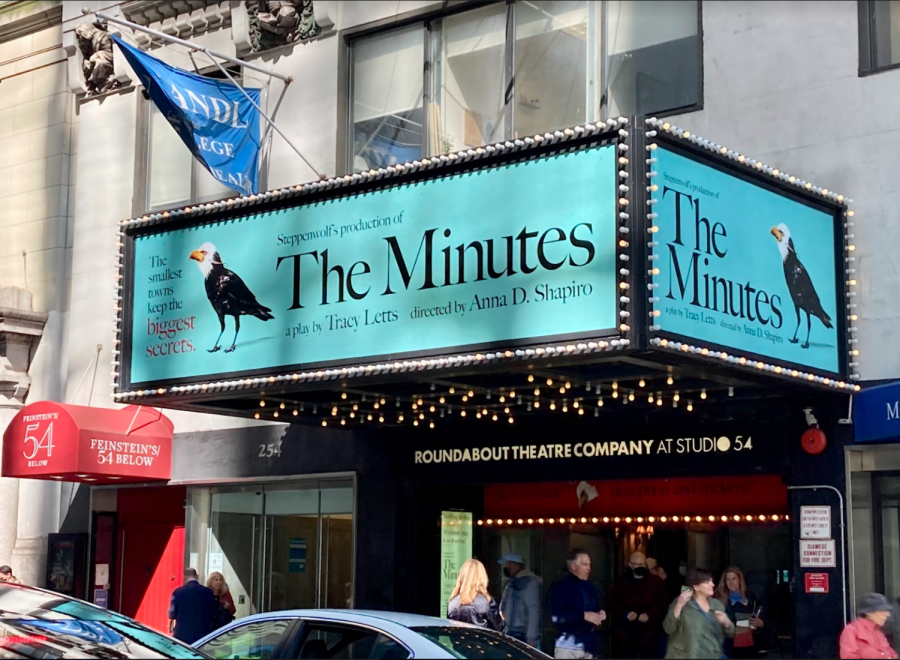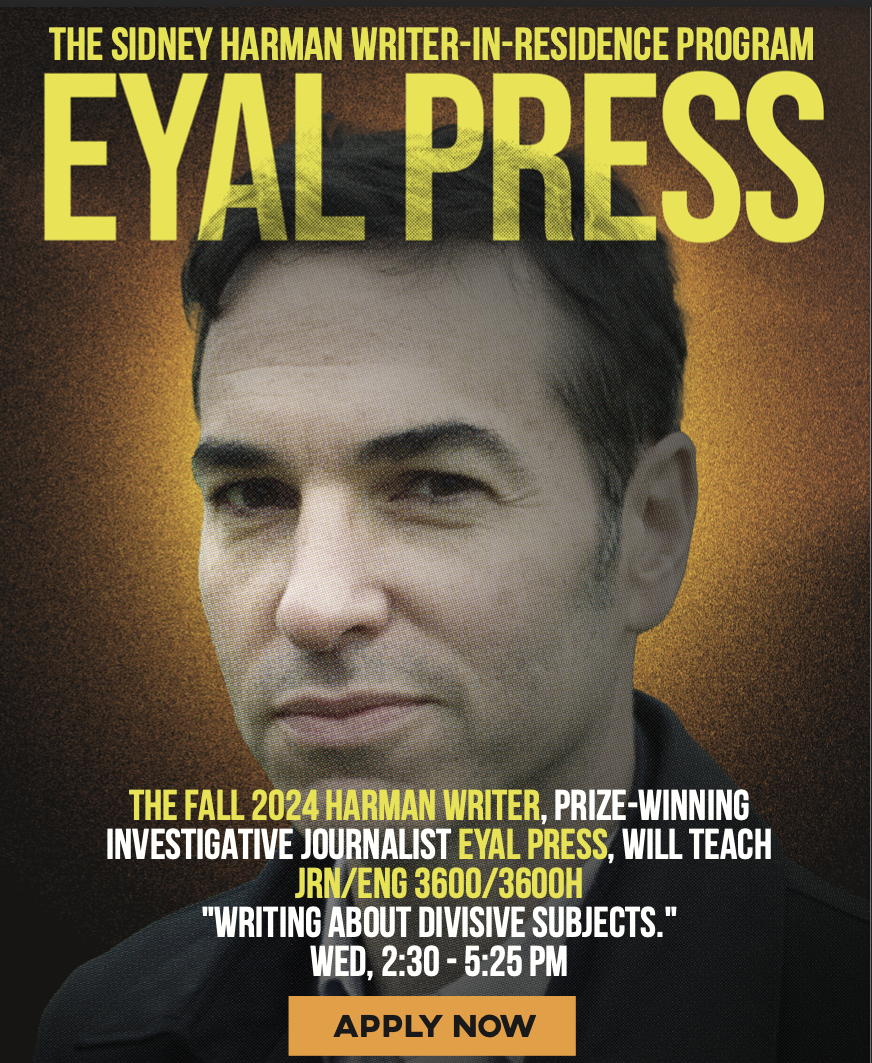‘The Minutes’ play unravels dark secrets with absurd comedy
May 6, 2022
Inviting the audience to laugh and leaving them shocked, the Pulitzer Prize-nominated play “The Minutes” officially opened April 17 on Broadway after the pandemic halted performances.
Playwright Tracy Letts, a winner of the Tony Award and Pulitzer Prize, debuted his play at Chicago’s Steppenwolf Theatre in 2017. After performing 19 preview shows on Broadway at the Cort Theatre before the pandemic shut down theaters, the show has reopened at Studio 54, and resumed previews April 2.
“The Minutes” tells the story of the fictional town of Big Cherry, as it unfolds during a city council meeting on a dark and stormy day. In a humorous but chilling hour and a half, Letts leaves the audience wanting to know what happened in the previous council meeting and where its recorded minutes are.
Among the notable cast members, Letts stars as the caring but stern, father-like Mayor Superba. Tony Award winner Jessie Mueller plays Ms. Johnson, a young mother who works as the council clerk.
Replacing Armie Hammer post shutdown, Noah Reid of “Schitt’s Creek” fame plays Mr. Peel. He is a young father who moved to the town a few years ago, but ran for council out of concern for his daughter’s future.
After warming up the audience by playing “Stars and Stripes Forever,” the show opens to Peel attending his first council meeting after missing the previous one due to a funeral. Aside from questioning the lack of the previous meeting’s minutes, he is concerned about the frequent thunder sounds and lights flickering, the absence of fellow member Mr. Carp and the erratic behavior of the other members.
To describe the events that transpire in the first half of the meeting, this line is borrowed from the oldest and longest serving member, Mr. Oldfield: “I have no idea what is going on.”
The members engage in running gags and absurdly comedic dialogue, usually spurred by Oldfield’s forgetfulness or Innes’ unapologetic persistence. The members of the council even break into a spontaneous Civil War battle reenactment when Peel asks to explain the person immortalized in a public fountain.
As the play enters its second half, all of the absurdity begins to make sense when Peel successfully gets to the bottom of the previous meeting’s minutes. The audience also understands the specific name choice of the town, its teams and its events.
Reid delivers a powerful performance when his character breaks into a dramatic monologue. When all is revealed, Letts returns the favor with Mayor Superba’s own cautionary monologue. As alliances are made, broken and strengthened, the audience has to reevaluate its trust in the characters.
Given the United States’ recent but still unraveling confrontation of its treatment of marginalized groups, plus growing “woke” culture, the big reveal and choices made at the end are not surprising. Even so, the actions performed at the end, especially by the council’s seemingly kind and innocent members, will leave people in shock and worried about the future.
For people who enjoy a comedic story with a dystopic outlook, this limited engagement should not be missed. Without a doubt, “The Minutes” deserves a Tony no









